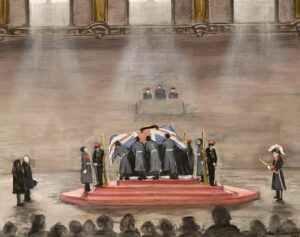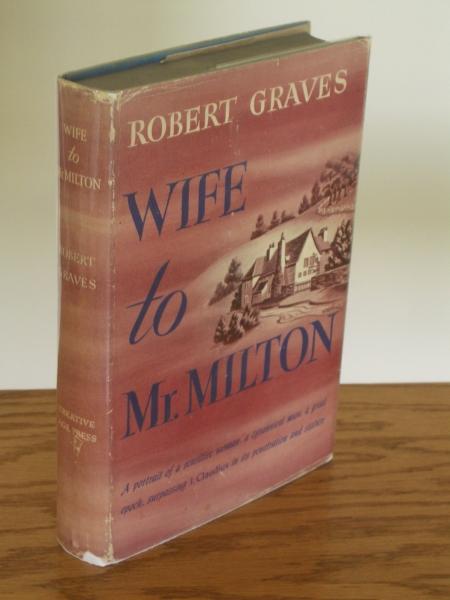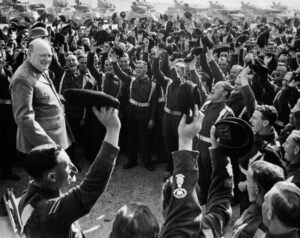
Bulletin #177 — Feb 2023
Churchill Style

To view in full, right click and then choose "View Image"
February 5, 2023
The Art of Being Winston Churchill: Reading
BY BARRY SINGER
Eighty years ago, after returning home to England from his meetings with President Roosevelt at Casablanca, Prime Minister Winston Churchill fell ill with pneumonia and was ordered by his doctors to rest. He refused. A compromise was reached: Churchill would have only the most important papers sent him, and he would read a novel.
He opted for Daniel Defoe’s 1722 novel Moll Flanders, which he had never read, followed by The Story of Marie Powell, Wife to Mr. Milton, a new book by Robert Graves, one of his favorite living authors. Graves painted an unflattering portrait of the poet John Milton from the perspective of Milton’s first wife, who was only sixteen when she was married. After finishing the book, Churchill wrote to Graves:
“During my illness I read your book about Milton’s wife, which you so kindly sent me. It makes a wonderfully vivid picture. You have certainly vindicated Macaulay:

2025 International Churchill Conference
“‘To make the past the present, to bring the distant near, to place us in the society of a great man or on the eminence which overlooks the field of a mighty battle, to invest with the reality of human flesh and blood beings whom we are too much inclined to consider as personified qualities in an allegory, to call up our ancestors before us with all their peculiarities of language, manners and garb, to show us over their houses, to seat us at their tables, to rummage their old-fashioned wardrobes, to explain the use of their ponderous furniture, these parts of the duty which properly belong to the historian have been appropriated by the historical novelist.’
“No one does it so well or so agreeably as you.”
Barry Singer is proprietor of Chartwell Booksellers in New York City and author of Churchill Style (2012).
Subscribe
WANT MORE?
Get the Churchill Bulletin delivered to your inbox once a month.
Oops! We could not locate your form.
Privacy




